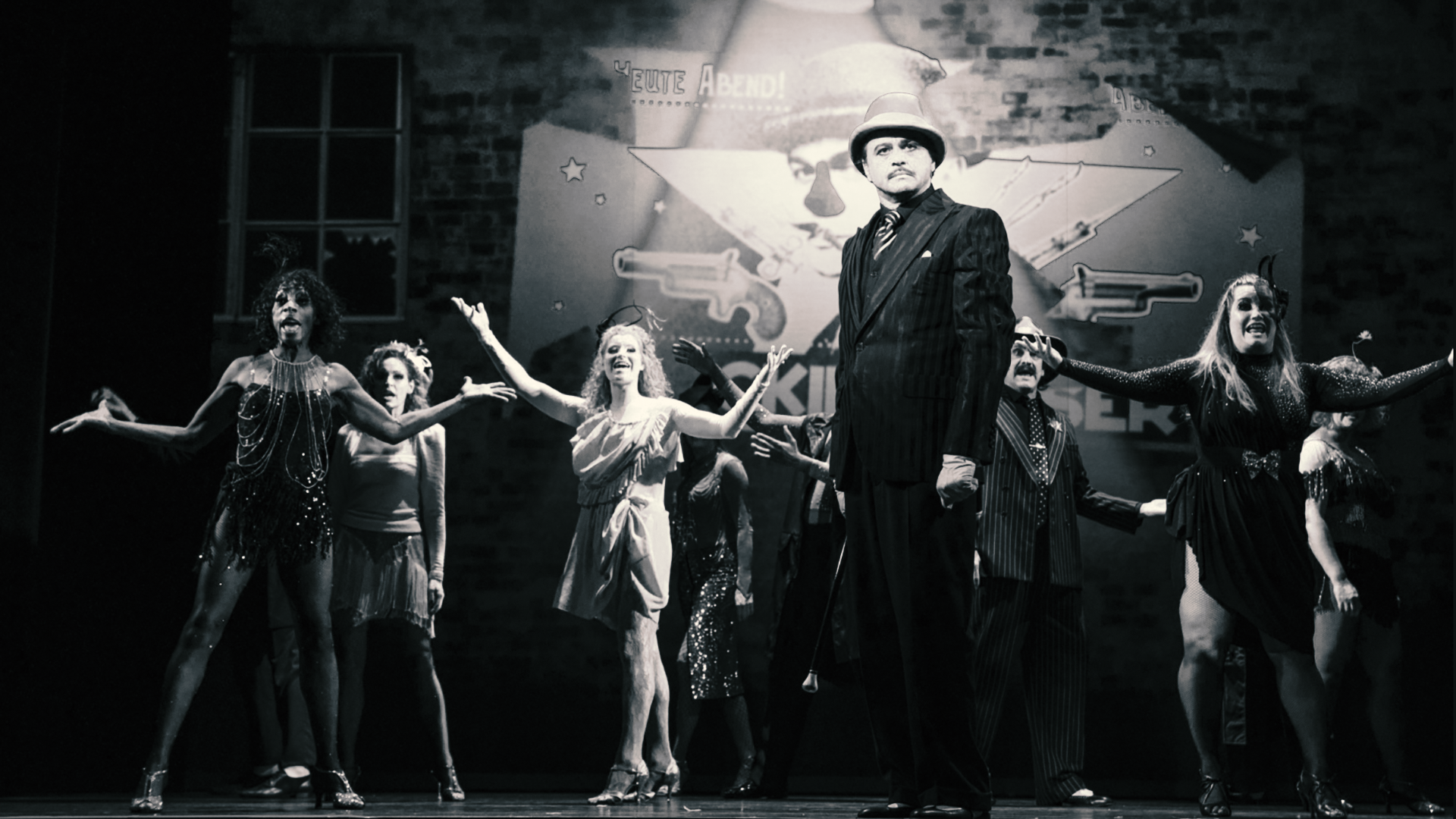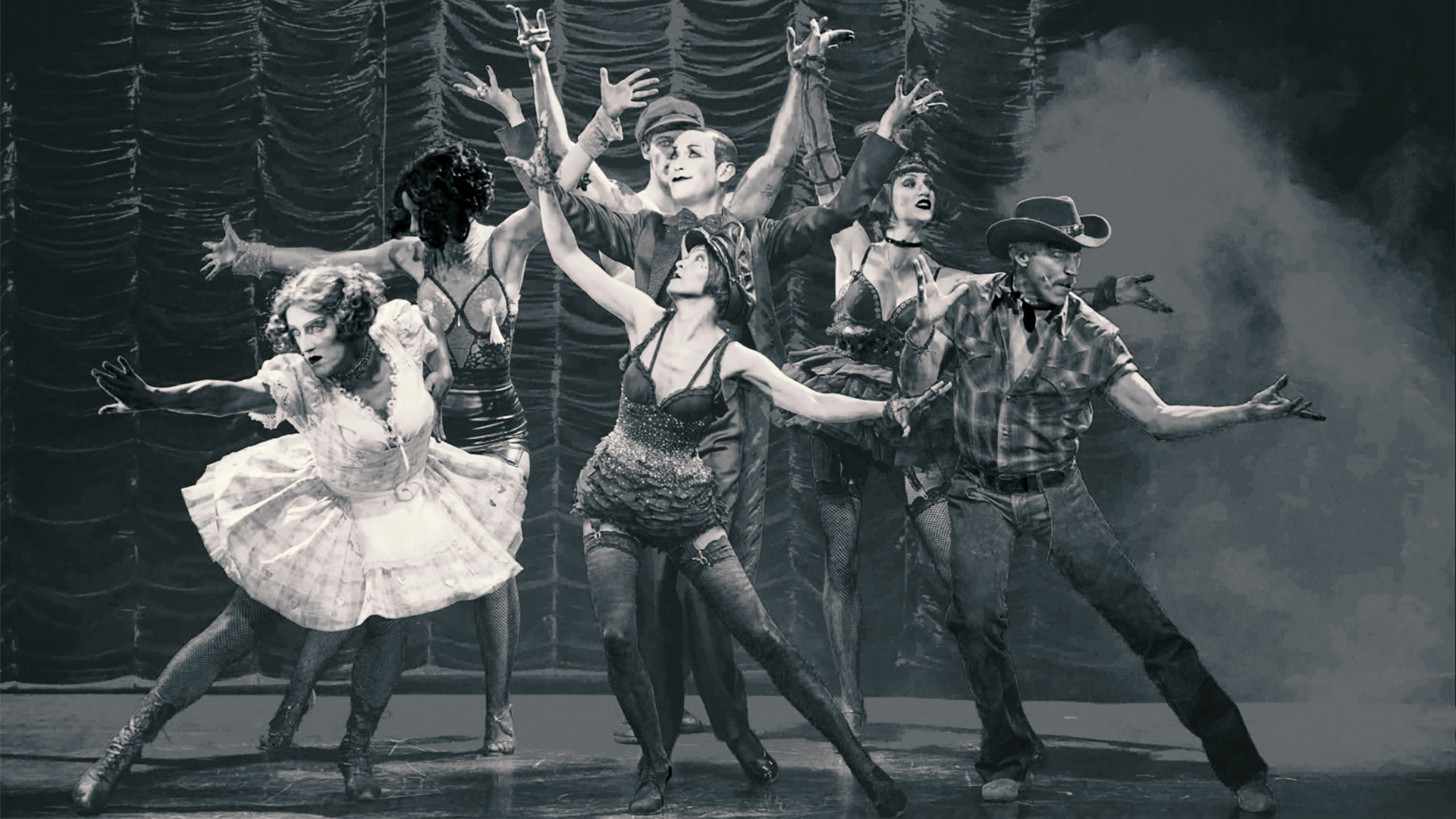HERCULES - THE MUSICAL
Hercules - the heroic Musical

directing
Authors:
Kwame Kwei-Armah, Robert Horn
Music by:
Alan Menken
Lyrics:
David Zippel
Direction & Choreography:
Casey Nicholaw
Co-Choreographer:
Tanisha Scott
MUSIC
Musical Director:
Hannes Schauz
My Performance:
REED 2: Baritone, Tenor Sax, Soprano Sax, Bb Clarinet, EWI
REED 1: Flute, Piccolo Flute, Bb Clarinet, Alto Sax
Disney’s HERCULES – The Musical
Disney’s HERCULES is the story of a demigod who embarks on a search for his place in the world. The musical guarantees powerful emotions, captivating music and powerful voices, spectacular sets, and elaborate costumes – divine musical fun for young and old.
The brand-new “musical” adventure of the immortal hero was inspired by the 1997 Walt Disney Studios animated film of the same name.
The score by Oscar-, Golden Globe-, and Grammy-winners Alan Menken and David Zippel includes all the R&B and gospel hits familiar from the film, including the Oscar-nominated song “Ich werd’s noch erwiesen” (Go the Distance), “In Sekunden auf Hundert” (Zero to Hero), and “Ich will kein Mann” (I Won’t Say (I’m in Love)). The duo also wrote several new songs for the stage version.
The musical “Hercules” will be performed at the Stage Theater Neue Flora in Hamburg.
The premiere was on March 24, 2024.
THE THREEPENNY OPERA
The Threepenny Opera
By Bertolt Brecht, Music: Kurt Weill

ST. PAULI THEATER
Spielbudenplatz 29 – 30
20359 Hamburg
DIRECTION
Director: Peter Jordan / L. Koppelmann
Costumes: Barbara Aigner
Graphic Animation: Meike Fehre
Choreography: Harald Kratochwil
Theater Orchester Hamburg
Musical Director: Uwe Granitza
Accompaniment: Dulguun Chinchuluun
Supervision, Assist.: Matthias Stötzel
MUSICIANS
Uwe Granitza: Trombone
Jan Peter Klöpfel: Trumpete
Detlef Raschke: Alto- & Bariton Sax,
Clarinet, Flute, Piccolo
A. Böther: Tenor Sax, Clarinet, Flute, EWI
Matthias Pogoda: Guitar, Banjo, Keyboard
Stephan Sieveking: Piano, Keyboard
Lars Hansen: Double Bass
Helge Zumdieck: Drums, Percussion
The story of the fight between two not quite serious businessmen, the beggar clan king Peachum and the burglar king Macheath, called Mackie Messer, advertised as a “piece with music” at the premiere in 1928, was basically the first German-language musical. Bertolt Brecht wrote the text together with Elisabeth Hauptmann, Kurt Weill composed the immortal music. The three achieved a legendary worldwide success.
With song lines like “And the shark has teeth and he wears them on his face”, or “Soldiers live on the cannons”, “Whether they like it or not, they are ready. That is sexual bondage”, “However you twist it, however you push it, first comes the eating, then comes the morals”, “Because that’s how people live, that they can so thoroughly forget that he’s a human being.”, “Who wouldn’t want to live in peace and unity, but the circumstances aren’t like that.”
In the new version of the St. Pauli Theater by Peter Jordan and Leonhard Koppelmann, the songs are pushed forward with all their force, they will be the secret center of the new interpretation. And if you look around, not only in the small world of the neighborhood, but also in the big world of politics, you have to realize that not much has changed since Brecht’s analysis. Or as he writes: “Who doesn’t want a paradise on earth? But the circumstances permit it? – No, they don’t allow it.” Rarely has social criticism been presented in such a light and tongue-in-cheek manner. Nothing has changed about that either.
CABARET
Cabaret
By Joe Masteroff, John Kander & Fred Ebb
Featuring Tim Fischer!

Steindamm 17
20099 Hamburg
Germany
DIRECTION
Director: Ulrich Waller
Co-Direct.: Dania Hohmann
Stage Design: Raimund Bauer
Costume: Ilse Welter
Choreografy: Kim Duddy
Musical Director:
M. Stötzel, M. Weibrich
MUSIC
Kontrabass: Lars Hansen,
Jens Wrede
Violine: Rebecca Borchert
Trombone: Uwe Granitza,
A. Deichmann
Trumpet & Percussion:
Jan Peter Klöpfel
Clarinet, Flute, Saxophone:
Detlef Raschke
Drums & Percussion:
Helge Zumdieck
How often do we think that the time we are experiencing is becoming increasingly similar in the 1920s? The apparently unstoppable decay of a world order, especially due to the re -strengthening of nationalism, the doubts about the acting political class. All of this seems strangely known to you. No other piece of music theater describes this lifestyle of the upheaval, which also inspires a large audience with series like Babylon Berlin, as well as the American musical legend Cabaret.
Using two stories, she tells of love and her failure in politically difficult times. The American writer Cliff Bradshaw is being torn into the still shimmering, but more and more darkening Berlin in the late 20s.
Sally Bowles, a young English singer who appears in the wicked Kit Kat Club and was previously used to sorting her love life on a weekly, will be his new flame. But the young love of these two strangers in Berlin, not only because of constant livelihood problems, hardly get any air to breathe. Finally, difficult -to -compatible life concepts and the completely different assessment of the situation in Germany lead to separation.
The political circumstances intervene even more violently into the late, tender gang of love between pension host Fräulein Schneider and the Jewish vegetable dealer Mr. Schultz. Young people appear at the engagement festival of the two who want a completely different world order. And at the latest after a very tangible attack on Schultz’s shop, it becomes clear that this love in Germany at that time can also have no future.
Through these stories, a demonic conférencier leads to the boundaries between the show and reality with its kit kat girls. “Life is a Cabaret” is therefore also called the title song.
In the spring of 2020, this production was opened with an enthusiastic premiere in the Hansa Theater Hall, in addition to the winter Varieté program, a new program line that deals explicitly for a hundred years later. Other music theater pieces that have this time on the subject should follow. In addition, the stage on the Steindamm becomes the little sister of the St. Pauli Theater. The legendary Hansa turns into the glittering Kit-Kat Club. Her host there is the wonderful and cheered singer and chansonnier Tim Fischer, at the head of a top -class ensemble, with Anneke Schwabe as Sally Bowles, Sven Mattke as Cliff Bradshaw, Angela Winkler as Miss Schneider and Peter Franke as Mr. Schultz.
With a grandiose orchestra, great songs, exciting choreographies and two touching love stories, the viewer is kidnapped in the Golden 20s, immersion in this attitude to life can be immersed. A unique theater experience for all generations.
NEW DATES:
May 9. – June 4. 2023



